Arsalan Iftikhar suo-moto: SC assigns case to AG
 ISLAMABAD: A two-member bench on Thursday disposed of suo motu case regarding Dr Arsalan and ordered Attorney General for Pakistan Irfan Qadir to take action against Malik Riaz Hussain, Dr. Arsalan, Salman Ali Khan etc. according to law who might have committed any illegal acts.
ISLAMABAD: A two-member bench on Thursday disposed of suo motu case regarding Dr Arsalan and ordered Attorney General for Pakistan Irfan Qadir to take action against Malik Riaz Hussain, Dr. Arsalan, Salman Ali Khan etc. according to law who might have committed any illegal acts.
"It is our expectation that he (Attorney General) will set the machinery of the State in motion so that all those who may have committed any illegal acts, including Malik Riaz Hussain, Dr. Arsalan, Salman Ali Khan, etc are pursued and brought to book with the full force and vigour of the law," said the order.
Justice Jawwad S. Khawaja, who headed the bench in the suo motu case, read out the written order in the open court.
In the order, the court said that while highlighting the need for bringing these individuals to justice, they must clarify that it was not for them to judge the guilt or innocence of the parties concerned without evidence or trial.
"We, as judges, should be the last people to draw premature conclusions which are required to be proved through evidence," he added.
He further said that indeed, it was the cornerstone of the administration of justice in this country that all people, whether they appeared to them innocent or guilty, were entitled to the due process of law and were to be deemed innocent until proven guilty after a fair trial.
"Malik Riaz, Dr. Arsalan or Salman Ali Khan are thus entitled to due process and fair trial. Article 10-A of the Constitution has now codified this principle of due process in the form of a fundamental right".
He said through this suo motu case, it was not the intention to pronounce final judgment on the guilt or innocence of those allegedly involved.
"Our purpose is to take cognizance of this matter so that the people's right to have access to information about matters of public importance can be vindicated. This object, in our opinion, has been achieved in these proceedings," he observed.
Giving the reason, Justice Khawaja said the matter of public importance in this case was the aspersion cast on the independence and integrity of the superior judiciary of the country.
He said the statement of Malik Riaz, given in open court, and put in writing, should clear all doubts on this score.
"He has admitted in writing that the judiciary has been, and remains, ill-disposed to the grant of favours, despite his own efforts to the contrary".
"To put it simply, even a resourceful person such as Malik Riaz had been forced to concede failure in his attempt to compromise the integrity and independence of the judiciary, despite the alleged payment of 34 crore rupees," he added.
Justice Khawaja further said that this fact demonstrated that the gains won by the people's struggle since 2007 were not yet frittered away.
About role of media in the whole event, the Judge wrote in the order that the series of events which comprised the run-up to this suo motu case also raised concerns about issues of media law and ethics.
"It is indeed sad that the people of Pakistan were, for a number of days, held hostage to a fear about the independence and integrity of their country's superior judiciary, on the basis of what has turned out be an utterly baseless allegation, withdrawn now by the same person who is alleged to have started it".
He said that the ethic and legal framework of the media required fairness and objectivity; it required that journalists conduct due diligence before reporting any news so that rumours and insinuations were filtered out, particularly in matters of grave significance such as ones arising in this case.
Justice Khawaja said, "Even when they have come across a particular information, fair conduct requires it is checked and rechecked. From the statements filed by certain media persons in court the requisite due diligence prima facie, appears not to have been undertaken. Had this been done, the concerned media persons would have found out what has been ascertained by us with very little effort".
He said moreover, Dr. Arsalan and his conduct should have, from the very beginning, been kept separate and distinct from the integrity and independence of the judiciary.
"It should not have taken an in-court statement from Malik Riaz to settle the matter. Without proper care and professional excellence, even sincere and honest journalists risk being used as tools in the hands of those who may not be obedient to the laws and the constitution of Pakistan," he added.
The Judge said the statement submitted by Kamran Khan, GEO Tv anchorperson, also showed that even rudimentary checks would have made it clear that Malik Riaz had indeed had no direct contact or transaction or other dealing whatsoever with Dr. Arsalan.
About affidavit submitted on behalf of Shaheen Sehbai, he said that it was quite clear from the affidavit that he was neither in possession of the evidence nor had he seen it.
"Likewise, none of the persons mentioned in his affidavit was in possession of the evidence".
"Mr. Sehbai goes on to state that his prime goal was to warn the Judges of a conspiracy. We are left wondering if giving an Internet-based interview without seeing any of the documents and then uploading such interview on YouTube was indeed the best way to warn the Judges of a conspiracy," he observed in his ruling.
"If we do not guard our reputation the honourable people of Pakistan will be justified in pointing fingers at us. The same applies to all other institutions, including the media," he added.
He said that because of the limited scope of these proceedings, it was not necessary for us to embark upon any inquiry as to the thoroughness of journalistic inquiry commensurate with the magnitude of the disclosures which all the three journalists appeared to be fully aware of.
"It is, however, our considered opinion that appropriate levels of due diligence could have avoided the situation which the whole nation including this court found itself in, on the morning of 6.6.2012," he added.
About documents provided by Malik Riaz with his concise statement, he said it were related only to 4.5% of the total money allegedly spent on behalf of Malik Riaz. The rest remained unaccounted for.
This was because the total alleged amount spent as illegal gratification was almost Rs. 342.5 million or around 34 crore rupees. This spending was alleged to have been done by two distinct means: one, in the form of facilitation during the foreign trips, i.e. paying for tickets, accommodation, food and entertainment; second, by way of cash transfers.
It was the second kind of spending i.e. cash transfers which were alleged to comprise the largest chunk of the alleged bribes. So the three foreign trips in aggregation came to Rs. 15.5 million (8.9 + 0.7 + 5.9) or around 1.6 crore; the rest, a staggering sum of Rs. 327 million or 32.7 crore was supposed to have been transferred as cash, i.e. currency notes of unspecified denomination.
"The documents which have been attached to the concise statement only deal with the foreign trips component of the alleged bribes. For the alleged cash transfers, no evidence at all (not even a bare affidavit of Salman Ali Khan) has been provided. Even the dates of such cash transfers or their location have not been indicated".
He said these transfers were alleged to have taken place in four installments. The largest such installment was said to have been Rs. 157 million, i.e. 15.7 crore.
"By any standards, that is a lot of money for anyone to be giving or receiving in the form of hard cash. It is not impossible. But it does raise some suspicion about the veracity of the narrative which any diligent or even rudimentary inquiry should have addressed," he added.
He further wrote that this case had presented to them, like the proverbial dark cloud, its own silver lining.
"Openness and transparency in the full glare of an open court hearing with equal opportunity to the two sides, is one of the defining features of our legal system. The people of Pakistan can rightfully demand such openness and transparency as their right".
"These hearings have given us an opportunity to demonstrate and make it absolutely clear, as we have done previously in a large number of high-profile cases, that in the Islamic Republic of Pakistan, no one is above the law. Even the highest constitutional functionaries, and their kith and kin, cannot but submit themselves and their affairs to the law. We must know that howsoever high and mighty a person may be, the law is higher and mightier," he added.
Justice Khilji Arif Hussain, the other member of the bench, also added a short note saying that they as judges were particularly in the public domain, all persons exercising State functions were in the eyes of the people.
"Although family members of public functionaries are, properly speaking, not performing State functions, the alleged facts of this case highlight the necessity of extreme caution and discretion in their private and public dealings and conduct," he added. APP


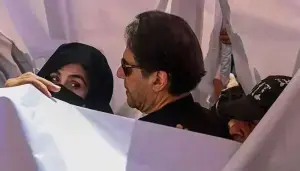
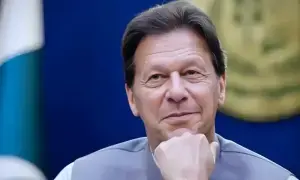
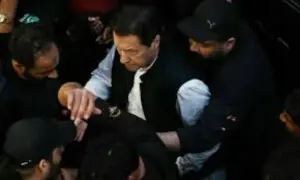
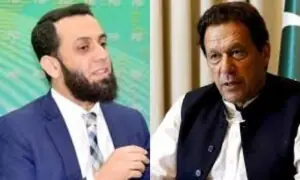




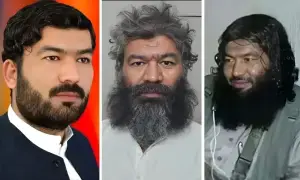
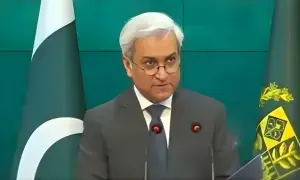
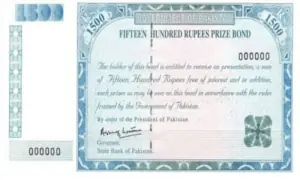

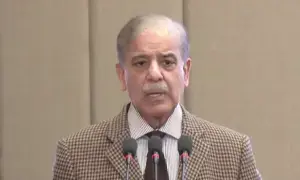
Comments are closed on this story.